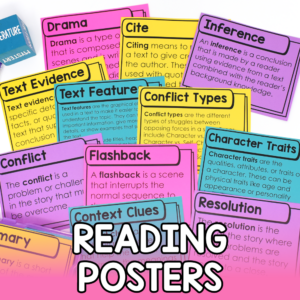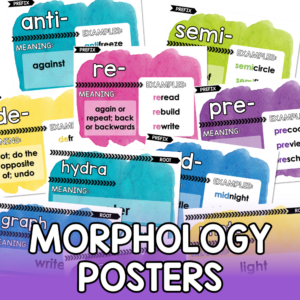When it comes to building relationships with parents, my philosophy is simple yet powerful: believe that they’re doing the best they can.
This approach isn’t something I consciously adopted at first—it was just how I viewed the world, shaped by my own experiences with my family. It wasn’t until later that I realized not everyone sees things this way, and that’s okay.
And I want to share this perspective with you because I believe it can strengthen your communication and relationships with parents, and ultimately, make things better for your students.
The Power of Believing in Parents
Just like with our students, when we believe in parents, it shapes how we act and how we talk to them. When you assume that parents are doing their best, it changes everything—how you approach them, how you communicate, and how you build that relationship.
Whether they’re able to help with homework or they’re just trying to get through the day, when you start with the belief that they’re doing their best, you’re more likely to support them in a way that fosters collaboration rather than conflict.
Acknowledging the Nuance
Now, I want to be clear—this philosophy doesn’t mean turning a blind eye to harmful situations.
As educators and mandated reporters, we have a responsibility to act when a child is in danger.
However, in some cases, what we perceive as a lack of involvement or care from parents might actually be them operating from a place of trauma, stress, or simply doing the best they can with the resources they have.
For example, if a parent isn’t reading with their child at home or signing the homework agenda, it might not be because they don’t care. It could be because they’re overwhelmed, working multiple jobs, or dealing with their own struggles. I’ve had parents who couldn’t help with homework, not because they didn’t want to, but because they were navigating their own unresolved trauma or simply didn’t know how to help.
When we approach these situations with empathy and the belief that they’re doing their best, we open the door to more productive and positive interactions.
The Neuroscience Behind It
For those of you who are curious about the science behind this, let me break it down.
Our brains are incredibly powerful, but they’re also like filters—they don’t show us everything.
Instead, they focus on what they think is important to us based on our beliefs and what we pay attention to.
When you genuinely believe that parents are doing the best they can, your brain starts to show you evidence of that.
It’s not about making stuff up—it was always there, you just didn’t see it before because your brain wasn’t tuned in to notice.
Once you set this intention, you’ll start spotting all the ways parents are trying, and that awareness can change how you interact with them.
Actionable Strategies for Building Positive Parent Relationships
Shift Your Perspective
Try to stop viewing parents as just a tool for controlling misbehavior in the classroom. Instead, see them as partners in supporting their child’s success. When you approach parents with the belief that you’re on the same team, it naturally leads to more collaborative and supportive relationships.
Reach Out Early with Positivity
For students who are at risk of having challenging behaviors, make it a point to connect with their parents early on. Share the great things you see in their child—authentically and sincerely.
Every child has something wonderful about them, and recognizing that helps build trust with parents from the start. I make a habit of reaching out to the parents of students who might struggle behaviorally, not with complaints, but with genuine praise for their child’s strengths.
This simple act can make a world of difference in how parents perceive you and how they engage with their child’s education.
Assume the Best, but Be Prepared
Assume that parents are doing their best, and let that belief guide your actions.
If you later discover that a parent isn’t providing the support their child needs, then you can take appropriate action. More often than not, you’ll find that parents truly are trying their best, and your positive approach will pay off. Even when you do find that a parent isn’t fully meeting their child’s needs, approaching the situation with empathy and understanding often opens the door to a more constructive conversation and solution.
Final Thoughts
Just as our students need to know that we believe in them, parents need to feel that we believe in their intentions and efforts. By assuming the best in parents, we create a foundation for strong, supportive relationships. This perspective is about choosing to approach each interaction with empathy and understanding. In doing so, we not only help our students succeed, but we also build a stronger, more connected classroom community.
By setting this intention and embracing this perspective, you may find that your relationships with parents—and the outcomes for your students—improve in ways you didn’t expect. If this mindset is new to you, I encourage you to give it a try. It might just make a world of difference.






Leave a Comment